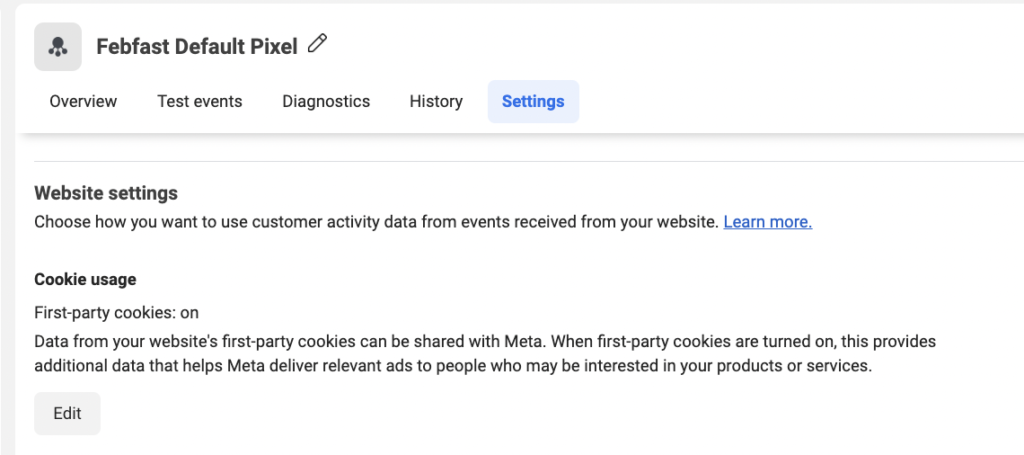Removing cookies and interest targeting – what does this mean?
In our second big digital update of 2023 – we’re talking cookies. Sadly, not the chocolate chip kind. Rather, the type that track your behaviour as a web user and allow you to target your supporters as a fundraiser!
What are cookies?
Cookies are small pieces of data that websites send to your device, which are stored on your browser. They are used by website owners for a variety of purposes, and they play a significant role in personalising advertising.
When you visit a website, the site sends a cookie to your device. Your device stores this cookie in your web browser. Cookies contain data specific to your visit on the website. This can include information like your preferences, login details, and which pages you visited. The next time you visit the same website, your browser sends the cookie back to the website. This allows the website to recognise you and customise your experience accordingly.
There are two types of cookies – first-party and third-party.
- First-Party Cookie Example:
Imagine you’re on Asos, and it saves a cookie so that it remembers what’s in your shopping cart. That’s a first-party cookie because it comes from and is used by Asos itself. First-party cookies allow you remain logged in on Facebook, Gmail or other retail sites. - Third-Party Cookie Example:
Now, say there’s an advertisement on Asos for The Iconic. If that advertisement puts a cookie on your computer to track which websites you visit, that’s a third-party cookie. It’s from a different company, not the shopping site you’re on.
The use of cookies for tracking and personalised advertising has raised privacy concerns. Users may not be aware that they are being tracked, or how their data is being used.
In response to these concerns, laws and regulations such as the EU’s General Data Protection Regulation (GDPR) have been implemented. These laws require websites to obtain consent from users before placing certain types of cookies, and to provide clear information about how cookies are used.
Chromes elimination of third-party cookies
As of January 2024, Chrome began a test with 1% of its users, to block third-party cookies. While this seems like a small percent – 60% of web users are on chrome – which makes the test group 30 million users!
The plan is to completely phase out third-party cookies by the end of 2024. Considering Safari already did this when it rolled out it’s iOS14+ changes, third-party cookies will essentially be dead by the end of 2024.
What will the implications be for our fundraising campaigns?
There are three main challenges we’ll need to be prepared for:
1. First party data reliance:
• We’ll need to rely more on first-party data, which is collected directly from an audience through interactions with your website, subscriptions, donation or past registration data. It’s worth looking at strengthening your own database and encouraging growing your database where possible.
2. Retargeting:
• This is probably the biggest one. We rely heavily on third-party cookies for Meta retargeting audiences, which will no longer be possible. It’ll be essential to use the Facebook Pixel, which tracks interactions on your own website, or leverage alternative tracking solutions offered by Meta that comply with new privacy standards.
3. Display and programmatic:
• We’ll need to rely more on contextual targeting. Or simply put – putting ads on websites that are about similar topics. For example, MS Readathon should look at placing ads on a book review website.
So, what can you do to help prepare for these changes?
Action: Enable first party cookies with your pixel AND use your Conversions API!
Make sure your Conversions API is installed and functioning.
Ensure you’re also utilising your pixel and enabling first party cookies. This is usually on by default but it’s worth checking.

Removal of detailed targeting from Meta
Well, this sounds familiar…
“Meta will be removing further interest targeting as of March 18th 2024, that are ‘not widely used’, relating to health, race or ethnicity. They’ll also be combining some certain interest groups.’
As a reminder, this is where we were two years ago (almost to the day!)
‘Starting January 19, 2022 we will remove Detailed Targeting options that relate to topics people may perceive as sensitive, such as options referencing causes, organizations, or public figures that relate to health, race or ethnicity, political affiliation, religion, or sexual orientation. Examples include:
- Health causes (e.g., “Lung cancer awareness”, “World Diabetes Day”, “Chemotherapy”)
- Sexual orientation (e.g., “same-sex marriage” and “LGBT culture”)
- Religious practices and groups (e.g., “Catholic Church” and “Jewish holidays”)
- Political beliefs, social issues, causes, organizations, and figures’
This was HUGE for Australian charities. We could no longer target interest groups like people who had shown an interest in a specific type of cancer, engaged with specific social issues such as climate change or similar organisations. CPA’s jumped up hugely due to the move to broader targeting, and we really had to reassess our digital strategies. This move, combined with the opt-out of tracking option with the move to iOS14+ was a pretty dark period for us digital fundraisers! However, in 2023, this seems to have stabilised and we’ve seen some record breaking CPA’s! These changes, whilst a challenge at the time, really forced us to look at digital as a whole and how we optimise websites, registration / donation flows and journeys too leading to some incredible successes.
The new changes announced by Meta last week don’t seem to be as catastrophic:
“Starting January 15, 2024, we’re removing or consolidating some detailed targeting options that relate to topics people may perceive as sensitive. Existing ad sets with impacted targeting options will continue to run until March 18 2024, but will require you to update your targeting selections. After this date, we will stop delivering ads to the discontinued detailed targeting options, and impacted ad sets may be paused.”
This is pretty vague so far – but if we look at the 2022 changes it’s pretty clear what sorts of audiences will be removed.
We do seem to be getting new options – with Advantage + shopping and Advantage + audiences, which is exciting to see. Meta’s Advantage+ audiences allow advertisers to automatically target users who are most likely to take specific actions, like making a donation, based on Meta’s extensive data on user behaviour and preferences.
Broader targeting doesn’t always work for our clients – but this seems to be where we’re being driven by Meta. We’ll continue to test and learn – and look at other ways of reaching relevant supporters. I saw a great article from Jon on this that I was emailed, he was saying this will make those vanity metrics look good and it’ll keep optimising based on views and top line engagement, but the jury is out if this will be beneficial to results driven KPIs. We predict if you’re using funnels, it’ll bring greater volume in but its highly likely the quality won’t be there.
As with all changes Meta makes – we’ll just have to wait and see, then test and keep testing!
Number of ad sets per campaign
When we were targeting a number of interest based groups, it made sense to have a large number of ad sets per campaign. The goal was to find the best performing audience, and optimise accordingly. Moving forward, it looks like this won’t be as necessary.
My take is this could perhaps be the push needed to limit audience testing and really focus on creative testing to optimise!
As always, if any of these changes sound daunting, or even if you’d like to discuss cookies (the web OR baked kind!) feel free to get in touch.

Emily Dougan
Digital Strategy Director
